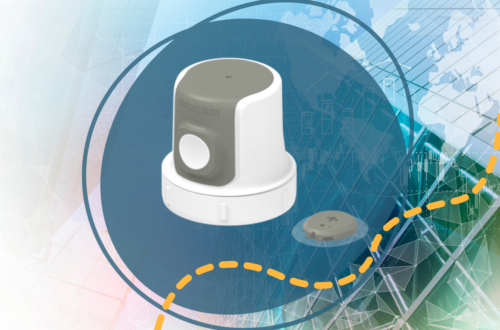
Over-the-Counter CGM Coming to a Pharmacy Shelf Near You
This has been the summer of over-the-counter CGM announcements. Continuous glucose monitors (CGMs), once only accessible through prescriptions, are now becoming readily available over the counter. This shift marks a significant step forward in the management of diabetes and other conditions that affect blood sugar levels.
With several major brands introducing or expanding their OTC offerings, individuals now have more options and greater accessibility. The move towards OTC availability promises to empower more people to take control of their health with real-time glucose monitoring, providing a new level of convenience and insight into their glucose management.
OTC CGM Options
Dexcom Stelo, coming in August/September 2024, promises to offer personalized insights about glucose health directly to a smartphone for up to 15 days of continuous wear. It is intended for adults 18+, with type 2 diabetes, who are not on insulin. While not designed to guide medical care, it can help users better understand the impact of behavioral motivation on glucose excursions.
Abbott Libre Rio is also designed for adults with type 2 diabetes who are not using insulin for management. It should look and function similarly to the FreeStyle Libre 2. There doesn’t seem to be a set release date yet for Libre Rio.
Abbott Lingo is designed for individuals without diabetes to better understand their metabolic health. Approved for 14-day wear, it links with a brand new smartphone app to provide customized health coaching based on glucose values and logged behaviors like meals, exercise, and sleep. The glucose measuring range is expected to capture values between 55 mg/dL and 200 mg/dL. Already available in the UK, it’s scheduled to launch in the US in summer 2024.
Access and Affordability
Access to and affordability of CGMs is immensely problematic right now, especially for our publicly insured patients. Time after time, folks show up to appointments without their supplies. I can only hope that an over-the-counter option will help improve this.
Granted, none of these options are technically approved for insulin use nor will they be integrated with other diabetes technology (like AID systems), but I honestly see insulin and pump-using individuals as being a core consumer group.
I am also relieved to see an option for individuals at increased risk for hypoglycemia, especially those only on oral or non-insulin injectables. Older adults with decreased awareness or those living in acute or long-term care are at much greater risk for life-threatening hypoglycemia, yet insurance rarely covers CGMs outside the setting of insulin use.
Of course, athletes and health and wellness-minded individuals will gain access to CGMs, but the guidelines are less clear on the utility of CGMs in these populations.
Glucose Monitoring Outside of Diabetes
In my own clinical experience working with clients using Signos and Nutrisense, hypervigilance of glucose values outside the setting of diabetes can be problematic. I would advise interested users to proceed with caution. There is no clear consensus on normal glucose trends and their interpretation for the general public.
A recent publication in Metabolism: Clinical and Experimental provides some guidance on how CGM could be used for weight loss and disease prevention. Authors write that “glucose dysregulation is more prevalent and heterogeneous than previously thought” and suggest that “most adults could potentially benefit from wearing a CGM, at least for a two-to-four-week period, to better understand their glucotype and recognize how different foods affect their own glycemic response.”
Key Takeaways
- Expanded Access and Options —Over-the-counter CGMs from Dexcom and Abbott will soon be available, making real-time glucose monitoring accessible to more people without needing a prescription.
- Addressing Affordability Issues—OTC CGMs aim to improve access. While not approved for insulin use or integrated with other diabetes technologies, they can still benefit insulin and pump users and those at risk for hypoglycemia.
- Broader Utility Beyond Diabetes—CGMs may have benefits outside of diabetes, but proceed with caution, as there’s no clear consensus on normal glucose trends.


You May Also Like

Product Review: Stelo by Dexcom
September 10, 2024
Embracing JOMO: Finding Peace in Professional Life
December 10, 2024
